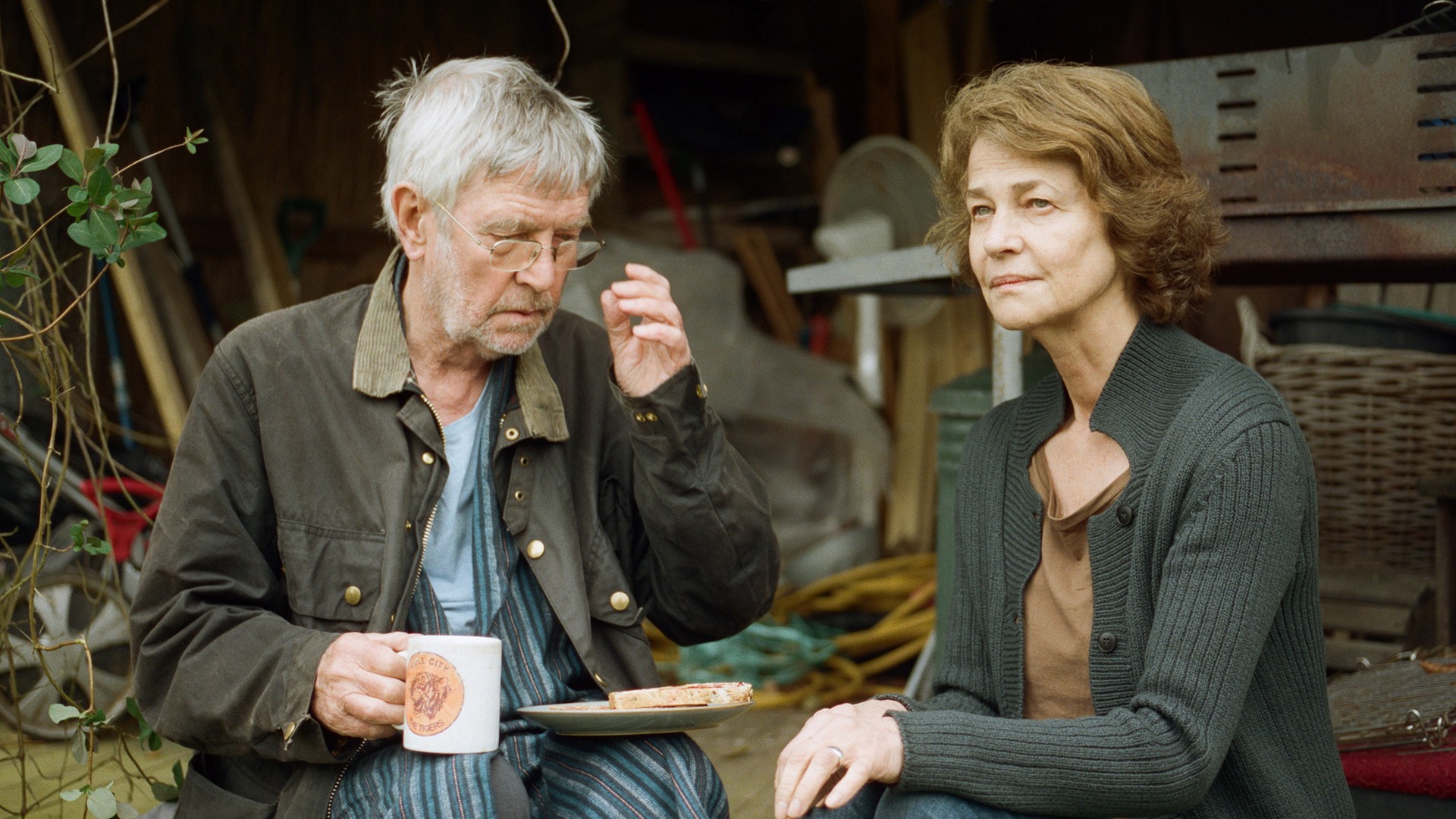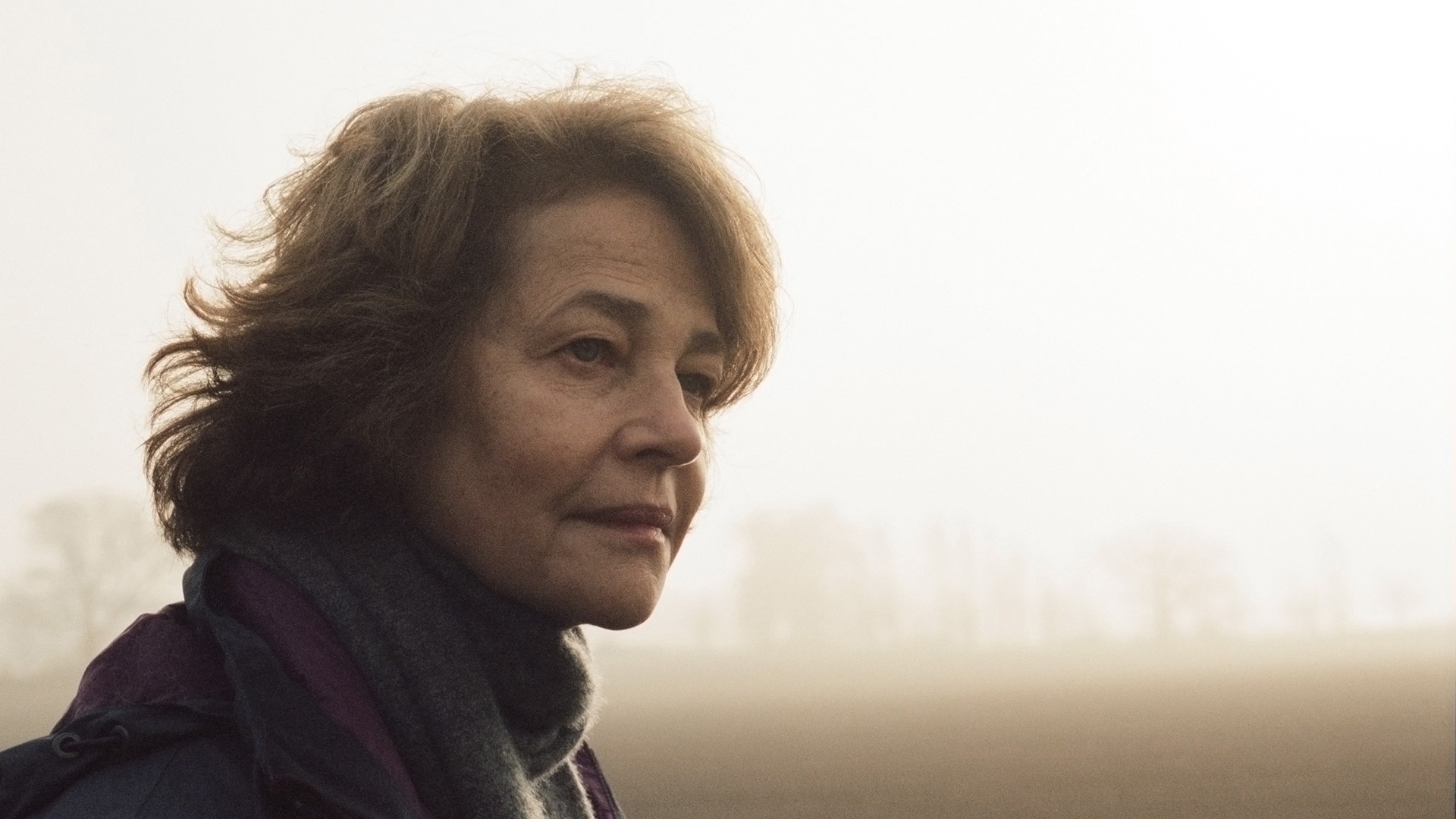
“Every film is a documentary of its actors,” Jean-Luc Godard once said. Starring Tom Courtenay and Charlotte Rampling, Andrew Haigh's shattering marital drama 45 Years expands that maxim: As we gaze at and listen to these performers, whose characters reflect on nearly a half-century together—almost as long as the leads have been icons—the movie becomes a tender unofficial career retrospective for both.
45 Years begins on a Monday, commencing a five-day countdown before Geoff (Courtenay) and Kate (Rampling) are to celebrate their sapphire anniversary. (Haigh wrote the script, adapting David Constantine's short story “In Another Country.”) These childless retirees—she was a schoolteacher, he worked as a manager at a local plant—still have tremendous affection for each other. Kate is the younger and haler of the two; she's often seen treading across the boggy terrain of Norfolk, in eastern England, with the couple's Alsatian or running errands in preparation for Saturday's big party. But her enthusiasm for the commemoration, and her long-held confidence in the relationship itself, is destabilized by news regarding Geoff's previous love, Katya, who died in a hiking accident in 1962.
That year, not coincidentally, marked the release of Tony Richardson's The Loneliness of the Long Distance Runner, a key work in the British New Wave that gave Courtenay his breakthrough role. Correspondences between fiction and fact abound in 45 Years, never more piercingly than when Geoff, recalling his first encounter with Kate, sometime in the mid-1960s, growls, “You were a bloody knockout.” The line prompts a kind of double vision: On the screen immediately in front of us, we look at a 69-year-old woman who still fits that lustful description; on the highlight reel playing in our minds, we recall Rampling's signature roles of the '60s, whether the mod star of Georgy Girl (1966) or an ensemble member of such Euro-decadent productions as Luchino Visconti's The Damned (1969).

Haigh's movie is told through Kate's point of view, that of a woman whose confidence in her union, and maybe even in herself, is completely upended by an all-consuming jealousy about her husband's past and a ghost she never knew. “I can hardly be cross with something that happened before we existed, can I?” she tells Geoff after learning more about Katya, her logical, serene response belied by the two words she utters next: “But still.” As Geoff grows ever more wistful about this pre-Kate era, his devoted spouse's sleuthing becomes more masochistic. When she comes across a particularly devastating clue, unveiled while clicking through some slides in the attic, Rampling makes the moment even more potent through her barely audible gasps: Kate's quietly quickened breathing signals her determination not to give in to histrionics, no matter how much she may be reeling.
Haigh beautifully anatomized desire and attachment among gay men in their 20s and 30s in his earlier feature Weekend (2011) and in the late, great HBO series Looking. With 45 Years, he has created not only a searching examination of a long-term marriage—and the myths that sustain it—but also a compassionate portrait of a woman reconciling herself with those false notions. Like François Ozon's Under the Sand (2000), another movie about a specter-haunted wife and one that was crucial in revitalizing Rampling's career, Haigh's film further proves that this actress is more than just a hallowed legend: She remains, on the eve of her 70th birthday, a brilliant, alert, indispensable performer.
45 Years was written and directed by Andrew Haigh, based on a short story by David Constantine; and stars Charlotte Rampling, Tom Courtenay, Geraldine James, Dolly Wells, David Sibley and Sam Alexander.

